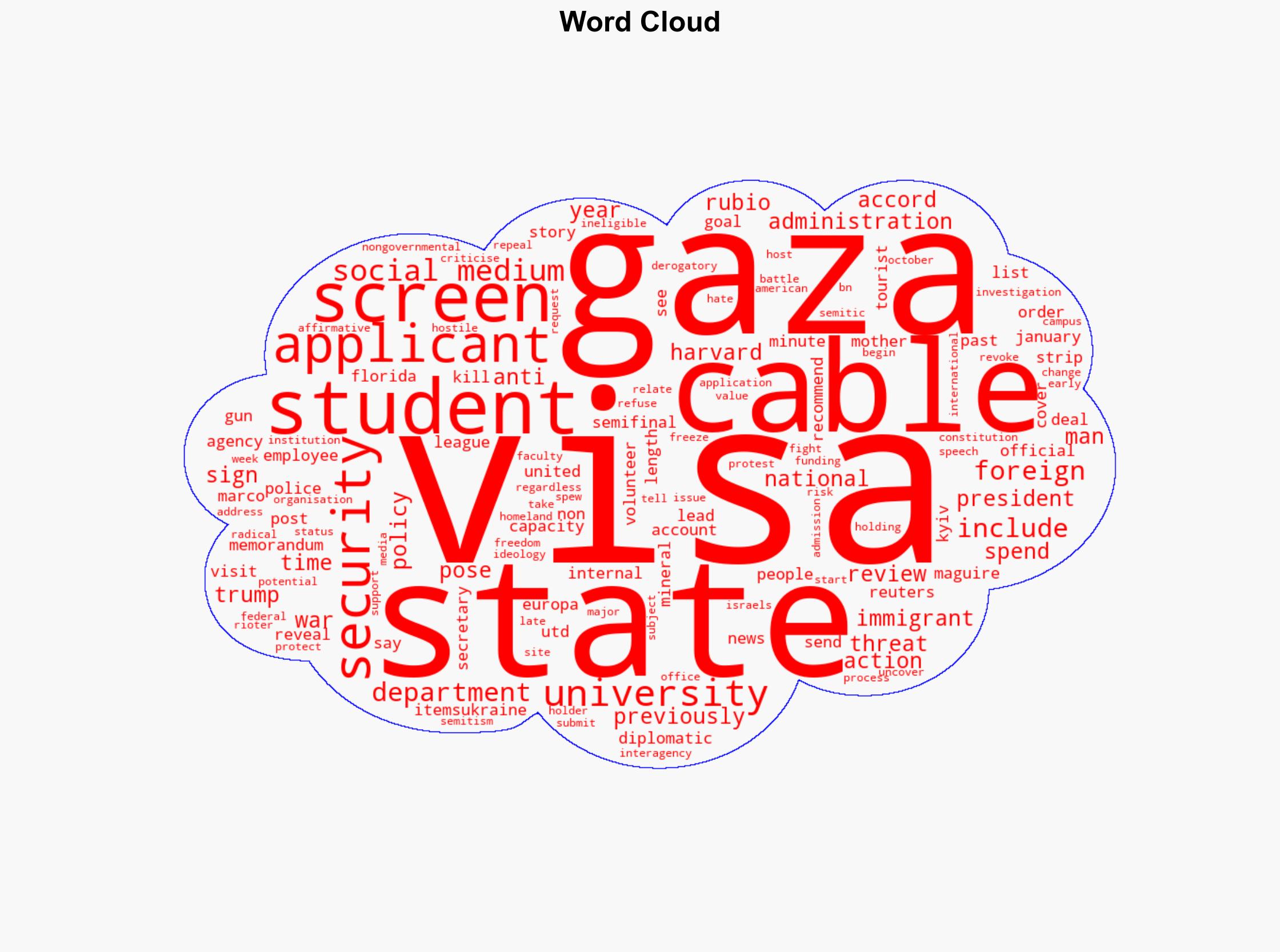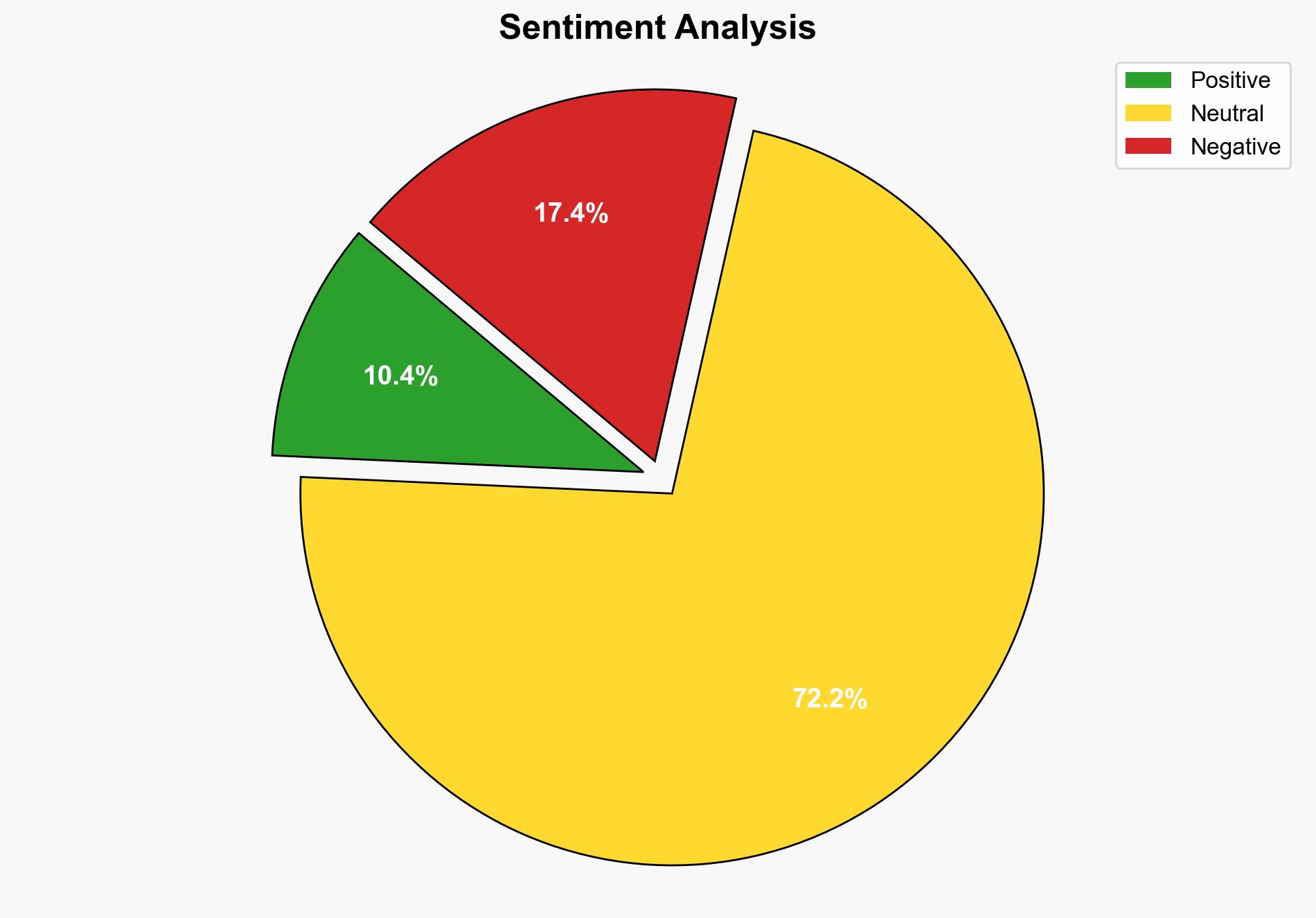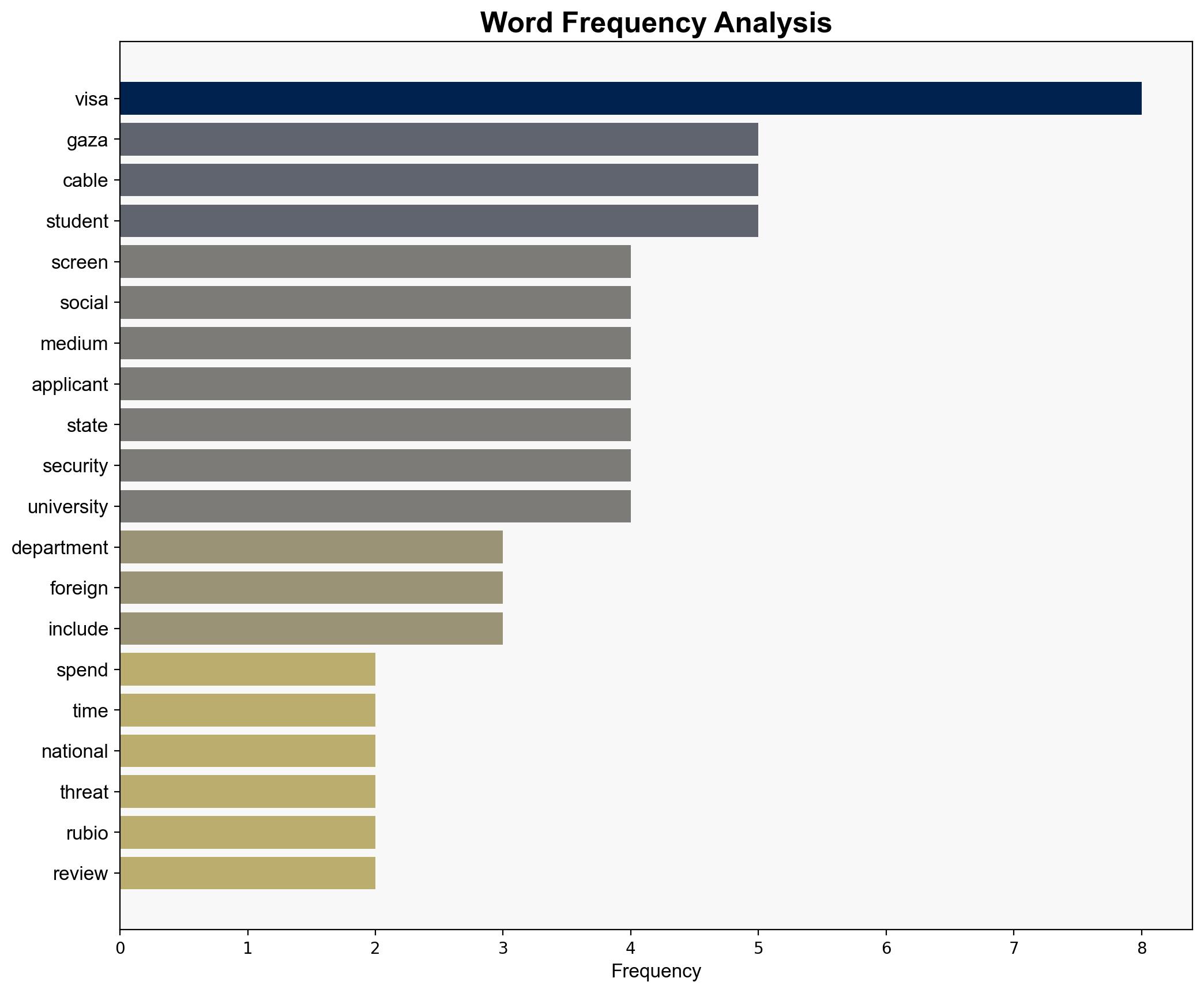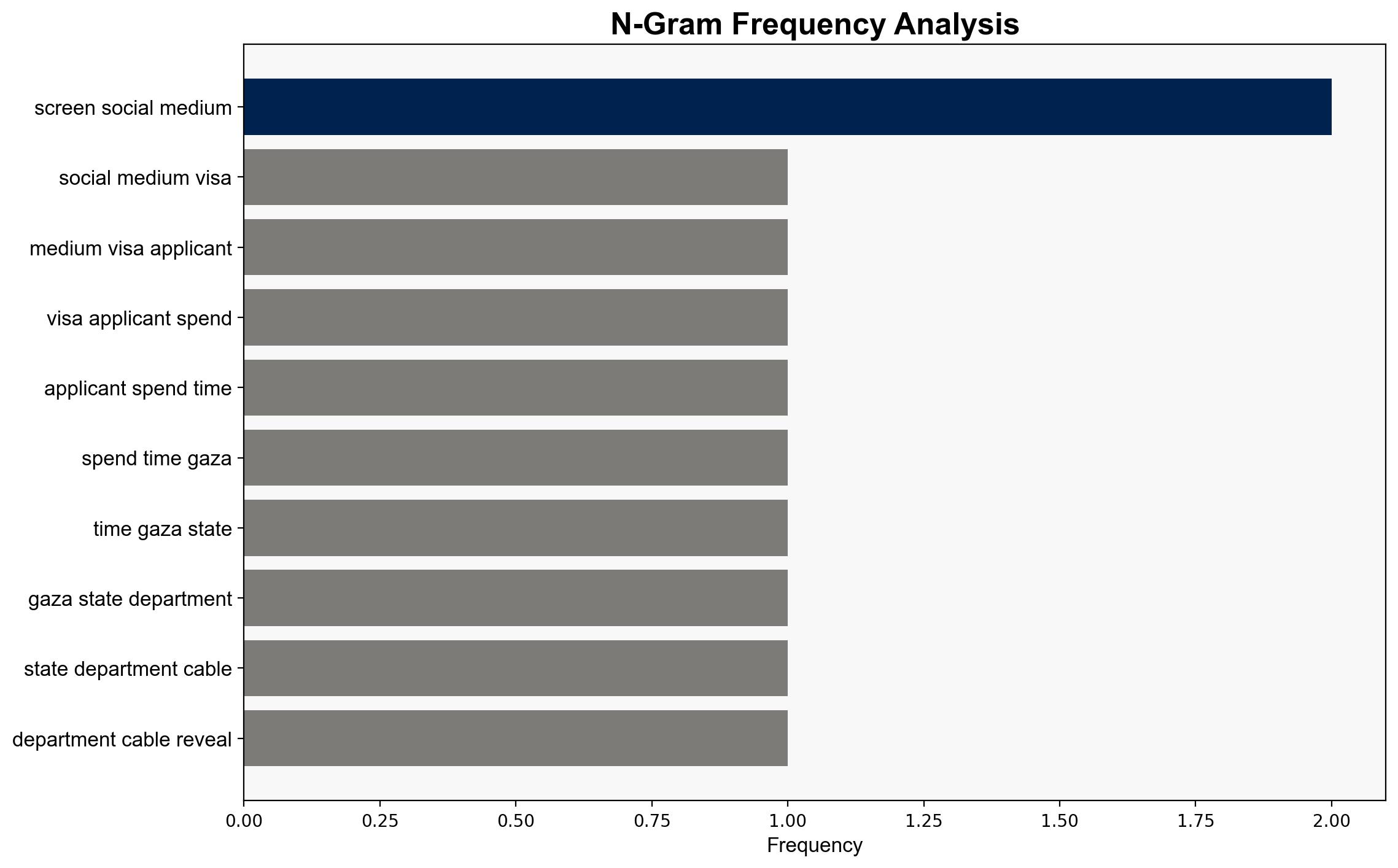US to screen social media of visa applicants who spent time in Gaza – Al Jazeera English
Published on: 2025-04-18
Intelligence Report: US to Screen Social Media of Visa Applicants Who Spent Time in Gaza
1. BLUF (Bottom Line Up Front)
The US State Department has initiated a policy to screen the social media of visa applicants who have spent time in Gaza since 2007. This measure aims to identify potential national security threats. The directive, signed by Marco Rubio, affects all visa categories and is part of broader efforts to scrutinize individuals perceived as hostile to US interests. The policy could impact diplomatic relations and provoke legal challenges concerning freedom of speech.
2. Detailed Analysis
The following structured analytic techniques have been applied:
Scenario Analysis
Future scenarios include increased diplomatic tensions with countries whose citizens are affected, potential retaliatory measures, and heightened scrutiny of US citizens abroad. The policy may also lead to increased anti-American sentiment and protests, particularly in academic and international communities.
Key Assumptions Check
The assumption that social media activity directly correlates with security threats is critical. This approach assumes that derogatory information on social media is a reliable indicator of intent, which may not always hold true. The policy presumes that increased screening will effectively mitigate threats without significant diplomatic fallout.
Indicators Development
Indicators of escalating threats include an uptick in visa denials, increased diplomatic protests, and public demonstrations against perceived US overreach. Monitoring social media discourse for shifts in sentiment towards the US and tracking changes in visa application patterns will be essential.
3. Implications and Strategic Risks
The policy could strain US relations with countries whose citizens are frequently denied visas. It may also lead to legal challenges based on freedom of speech and privacy rights. Economically, the policy could deter international students and tourists, impacting sectors reliant on foreign visitors. Politically, it could fuel anti-American sentiment and influence foreign policy dynamics.
4. Recommendations and Outlook
- Enhance diplomatic communication to mitigate potential international backlash and clarify the policy’s intent.
- Develop a robust framework for assessing social media content to ensure fair and consistent application of the policy.
- Monitor legal challenges and be prepared to adjust the policy to align with constitutional protections.
- Scenario-based projections suggest potential for increased diplomatic tensions and economic impacts if the policy is perceived as discriminatory.
5. Key Individuals and Entities
Marco Rubio, Donald Trump, Harvard University.





